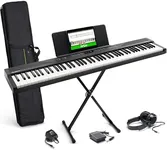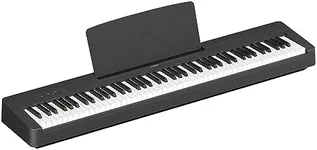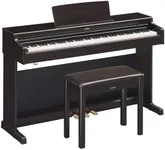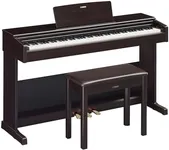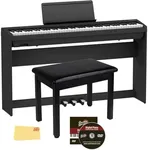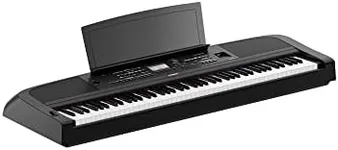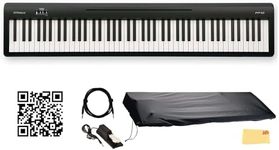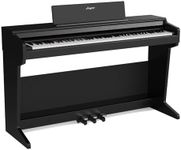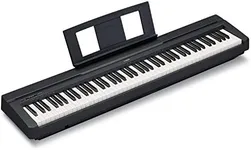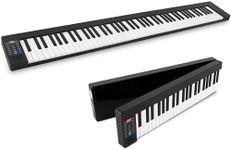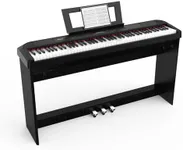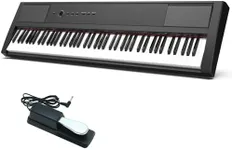Buying Guide for the Best 88 Key Keyboards
Choosing the right 88-key keyboard can be a rewarding experience, especially if you know what to look for. Whether you're a beginner, an intermediate player, or a professional, the right keyboard can make a significant difference in your playing experience. Here are some key specifications to consider when selecting an 88-key keyboard, along with explanations to help you understand their importance and how to choose the best fit for your needs.Key ActionKey action refers to how the keys feel when you press them. This is important because it affects your playing comfort and technique. Key actions can be divided into three main types: weighted, semi-weighted, and unweighted. Weighted keys mimic the feel of an acoustic piano and are ideal for classical and jazz pianists. Semi-weighted keys offer a balance between the feel of an acoustic piano and the lighter touch of a synthesizer, making them suitable for a variety of genres. Unweighted keys are light and responsive, perfect for electronic music and fast playing styles. Choose the key action that best matches your playing style and the type of music you intend to play.
Sound QualitySound quality is crucial as it determines how realistic and pleasing the keyboard sounds. This is influenced by the sound engine and the samples used. High-quality keyboards use advanced sound engines and high-resolution samples of real instruments, providing a more authentic and rich sound. When evaluating sound quality, listen for clarity, depth, and the natural decay of notes. If possible, try out different keyboards in person to see which one sounds best to you. Consider the genres you play most often and ensure the keyboard can produce the sounds you need.
PolyphonyPolyphony refers to the number of notes a keyboard can produce at the same time. This is important for playing complex pieces, using the sustain pedal, and layering sounds. Keyboards typically offer polyphony ranging from 32 to 256 notes. For beginners, 64-note polyphony is usually sufficient. Intermediate players might prefer 128-note polyphony to handle more complex compositions. Advanced players and professionals should look for 192-note or 256-note polyphony to ensure no notes are cut off during intricate performances. Choose a polyphony level that matches your playing complexity and future growth.
ConnectivityConnectivity options determine how you can use your keyboard with other devices and software. Common connectivity features include USB, MIDI, audio outputs, and Bluetooth. USB and MIDI connections are essential for recording and using music software on your computer. Audio outputs allow you to connect to external speakers or amplifiers for better sound projection. Bluetooth connectivity can be useful for wireless connections to apps and other devices. Consider how you plan to use your keyboard and ensure it has the necessary connectivity options to meet your needs.
Built-in FeaturesBuilt-in features such as metronomes, recording capabilities, and learning tools can enhance your practice and performance. Metronomes help you keep time, while recording features allow you to capture and review your playing. Some keyboards come with built-in lessons and tutorials, which can be beneficial for beginners. Advanced players might look for features like split and layer modes, which allow you to play different sounds on different parts of the keyboard simultaneously. Think about which features will support your learning and playing style, and choose a keyboard that offers those functionalities.
PortabilityPortability is an important consideration if you plan to move your keyboard frequently or take it to gigs. This includes the weight and size of the keyboard, as well as whether it has a built-in power supply or requires an external adapter. Lightweight and compact keyboards are easier to transport but may sacrifice some features or sound quality. Heavier keyboards often offer better build quality and more features but can be cumbersome to move. Consider how often you will need to transport your keyboard and choose one that balances portability with the features you need.
